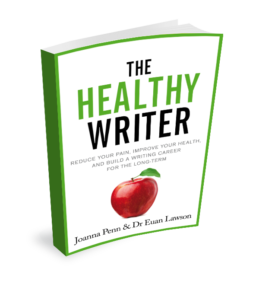Many writers begin with starry‑eyed dreams: days spent crafting prose in a sunlit study, thoughts flowing freely onto the page. Yet the modern reality often looks more like juggling deadlines, social‑media promotions, guest posts, blogging, and family demands—leaving scant time or energy for the writing that first drew you in. When the pressure mounts, it’s easy to feel guilty for skipped writing sessions, to envy peers who seem effortlessly prolific, or to snap at loved ones who don’t understand your creative “must‐dos.”
If that sounds familiar, take heart: stress, anxiety, and burnout are common in creative careers—yet they can be managed, even prevented, with mindful strategies. Here’s how to cultivate sustainable habits that keep your mind clear, your body energized, and your writing passion alive.
When Writing Feels Like a Chore
Writer’s fatigue creeps in after extended sprints at the keyboard, manifesting as:
- Mental fog: every sentence feels flat, basic vocabulary stumbles.
- Perfection paralysis: rewriting the same concept without satisfaction.
- Self‑criticism: negative thoughts cloud your judgment and style.
- Physical tension: sore neck, aching wrists, and an overall sense of heaviness.

While writer’s block can strike at the blank page, writer’s fatigue usually follows long days of intense work. Recognizing these signals early helps you recalibrate before exhaustion turns into burnout.
Stress vs. Fatigue vs. Anxiety vs. Burnout
Understanding these distinct—but related—experiences empowers you to choose the right remedy:
- Stress is the mind’s alarm system: juggling too much, racing thoughts, irritability, and that edge‑of‑collapse feeling. A little stress—like tackling a new writing technique or hitting a word‑count goal—can energize you. But chronic stress disrupts sleep, fuels unhealthy coping (sugar, caffeine, alcohol), and can erode well‑being.
- Fatigue goes beyond ordinary tiredness. If you wake up feeling exhausted and that heaviness persists all day—so that even a weekend won’t refresh you—you’re likely facing fatigue, not just a late night.
- Anxiety presents as persistent worry, restlessness, or physical symptoms (racing heart, digestive upset). It can hover at low levels or erupt in panic attacks.
- Burnout develops over months or years, blending emotional exhaustion, detachment (feeling alienated from your work), and a sense of ineffectiveness. Writers prone to imposter syndrome—constantly doubting their own talent—are especially vulnerable.
Eight Strategies to Thrive, Not Just Survive
1. Acknowledge Where You Are
The first step is honest self‑assessment. List your physical and mental symptoms—neck tension, poor sleep, racing thoughts—and admit that your current pace isn’t sustainable. Recognition opens the path to change.

2. Get Organized
Empty your mind onto paper or into a digital tool (Google Calendar for scheduling, a to‑do app like Things). Catalog personal, work, and writing tasks. Then assign deadlines, set priorities, and schedule downtime—yes, block “rest” on your calendar. If a task keeps migrating forward, question whether it’s truly essential.
3. Assess, Eliminate, or Outsource
Define your own success: Do you love public speaking, or does video marketing dread you? Cull tasks that don’t align with your strengths and passions. If budget allows, outsource time‑sapping chores—editing, social‑media graphics, transcript formatting—so you focus on writing.
4. Practice the Art of “No”
Opportunities abound, especially for emerging authors. But every “yes” chips away at your writing energy. When new requests arrive, pause. Sleep on it. Only say “yes” to projects that genuinely excite you. A simple rule: if it’s not a “hell yeah,” it’s a “no.”
5. Try a Digital Fast
We live tethered to screens—news alerts, social feeds, email pings—all vying for attention. Designate periods of aeroplane‑mode: weekend walks without checking mail, a “no social media” rule during writing hours, or a full day off tech each week. You’ll regain focus and calm.

6. Breathe with Intention
Conscious breathing is free, portable, and powerful. Practice a simple rhythm—inhale for five counts, exhale for five—several times a day. Or adopt a power pose (hands on hips, chest open) for two minutes to lower stress hormones and boost confidence.

7. Establish a Regular Physical Practice
Movement sharpens the mind and strengthens resilience. Whether it’s yoga, walking, cycling, or weights, aim for at least 30 minutes most days. The endorphin boost clears mental clutter, counteracts sedentary writing habits, and helps you weather creative challenges.

8. Embrace Your Natural Rhythms
Productivity isn’t constant—neither are your energy levels. Identify your creative seasons: maybe you draft new chapters in spurts, then switch to editing or marketing. Honor your body’s ebb and flow—schedule intensive writing blocks when you’re most alert, and lighter tasks when you need a breather. Recognize seasonal dips (winter blues, summer travel) and plan rest periods to match.

Moving Forward with Intention
Writing is both a craft and a lifestyle. To build a long‑term career, you must protect your well‑being as fiercely as you guard your manuscript. By acknowledging fatigue, streamlining your schedule, and nurturing your body and mind, you’ll find that the pages flow more easily—and with greater joy.
Reflective Questions
- What specific stressors are weighing on you right now?
- Which symptoms—fatigue, anxiety, or burnout—resonate most?
- What one action can you take today to lighten your load?
- How can you weave seasonal and daily energy patterns into your writing routine?
The path to a thriving writing life isn’t about grinding harder—it’s about writing smarter. Pause, breathe, and chart a course that honors your creativity and your health. Your future self—and your best work—will thank you.


